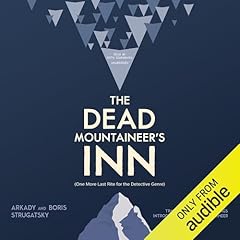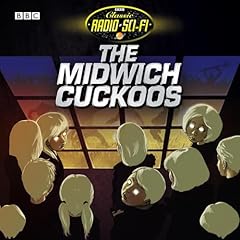
Roadside Picnic
Failed to add items
Sorry, we are unable to add the item because your shopping cart is already at capacity.
Add to Cart failed.
Please try again later
Add to Wish List failed.
Please try again later
Remove from wishlist failed.
Please try again later
Adding to library failed
Please try again
Follow podcast failed
Please try again
Unfollow podcast failed
Please try again
 Prime members: New to Audible?
Prime members: New to Audible?Get 2 free audiobooks during trial.
Pick 1 audiobook a month from our unmatched collection.
Unlimited access to our all-you-can listen catalog of 150K+ audiobooks and podcasts.
Access exclusive sales and deals.
Premium Plus auto-renews for $14.95/mo after 30 days. Cancel anytime.
Buy for $15.75
-
Narrated by:
-
Robert Forster
Listeners also enjoyed...




















People who viewed this also viewed...


















really an amazing book and a fantastic reader
Something went wrong. Please try again in a few minutes.
The audiobook narrated by Robert Forster changed that totally. This was, hands down, the best audiobook experience I've ever heard. Robert's deep, gravelly voice helps a ton on its own but his mesmerizing performance takes it all to another level. The whole book comes alive with vivid colors. Or at least vivid shades of gray and black. Guaranteed repeat listen.
Amazingly vivid performance to enjoy again & again
Something went wrong. Please try again in a few minutes.
Sadly this amazing story Ended on a cliff hanger
Something went wrong. Please try again in a few minutes.
Continue through the afterword by Boris Strugatsky. His record of the process of publishing Roadside Picnic is well with the time.
Horrors by the side of the road
Something went wrong. Please try again in a few minutes.
Fascinating
Something went wrong. Please try again in a few minutes.


